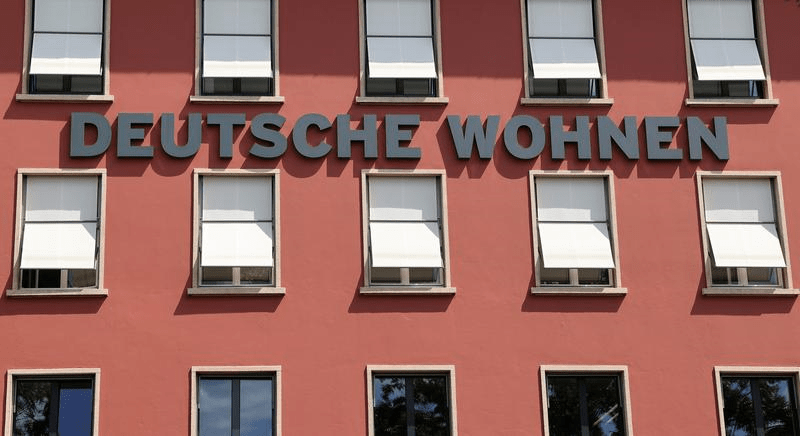Germany’s biggest landlords agree $22 billion merger

Germany’s two biggest listed landlords Vonovia SE and Deutsche Wohnen have agreed to join forces in a 18 billion-euro ($22 billion) deal that risks stoking tensions over affordable housing in the run-up to general elections in September.
The country’s biggest merger this year, which will create a European real estate giant with 550,000 apartments, faces criticism in Berlin, where tenant rights and rising rents are a contentious issue.
Analysts say the deal – which is the third attempt by Vonovia to swallow Deutsche Wohnen – should encounter few antitrust concerns in a fragmented market.
To try to secure political support, the two companies pledged to limit regular rent increases to 1% per year in Berlin for the next three years and to inflation-adjusted increases for the following two years.
They said the merger, which would create a company with a combined market valuation of about 47 billion euros, was designed to help them work with politicians on providing affordable housing and they have offered to sell around 20,000 apartments to the city of Berlin.
Under terms, which two financial sources said were agreed in less than two weeks, Vonovia will pay 52 euros per share and Deutsche Wohnen shareholders will retain the rights to a 1.03 per share dividend.
This represents a premium of about 18% on the closing price on Friday. Shares in Deutsche Wohnen rose as much as 16.4% on the news delivered in a statement after Monday’s market close, while Vonovia shares fell as much as 6.8%.
An earlier approach by Vonovia in 2016 failed to win acceptance from Deutsche Wohnen shareholders for a hostile 9.9 billion-euro takeover bid.
This time, Deutsche Wohnen CEO Michael Zahn said he was “very, very certain” that more than 50% of Deutsche Wohnen shareholders would tender their shares to Vonovia, exceeding the minimum of 50% required by the terms of the deal.
Vonovia owns just under 3% of Deutsche Wohnen and will hold around 10% by the start of the takeover offer, expected to run from mid-June to mid-July, the financial sources told Reuters, asking not to be named because they are not authorised to comment.
In Berlin, where rents have more than doubled since 2008, the left-leaning government tried to curb rent rises with a five-year rent freeze, but the Constitutional Court overturned the cap last month.
Deutsche Wohnen’s Zahn said: “No tenant will be hurt by this transaction.”
However, Marcel Fratzscher, head of the Berlin-based German Institute for Economic Research (DIW), said both groups already had considerable influence on rents and property purchase prices.
“I suspect that the Cartel Office will take a similarly critical view of this and therefore the chances of a merger are not very high,” he told Reuters.
Fabio De Masi, a parliamentarian from the left-wing Linke party that is part of Berlin’s city government, urged the competition authorities to block it.
“The housing market is broken,” he said in an emailed statement.
Even with its substantial lead over other German residential property groups, Vonovia has only a 0.9% share in Germany’s residential market, according to credit rating agency Scope, which has said a takeover would face few antitrust concerns.
The chief executive of Vonovia cited a need to make apartments more energy efficient and more suitable for the elderly.
“The combination with Deutsche Wohnen now gives us the opportunity to effectively tackle these challenges,” Vonovia CEO Rolf Buch said.
Vonovia said it had bridge financing of 22 billion euros for the deal, to be refinanced by measures including an 8 billion euro rights issue in the second half of 2021, following the transaction’s close.
“It makes sense strategically,” analysts at Jefferies said in a note, but said the synergies were low.



